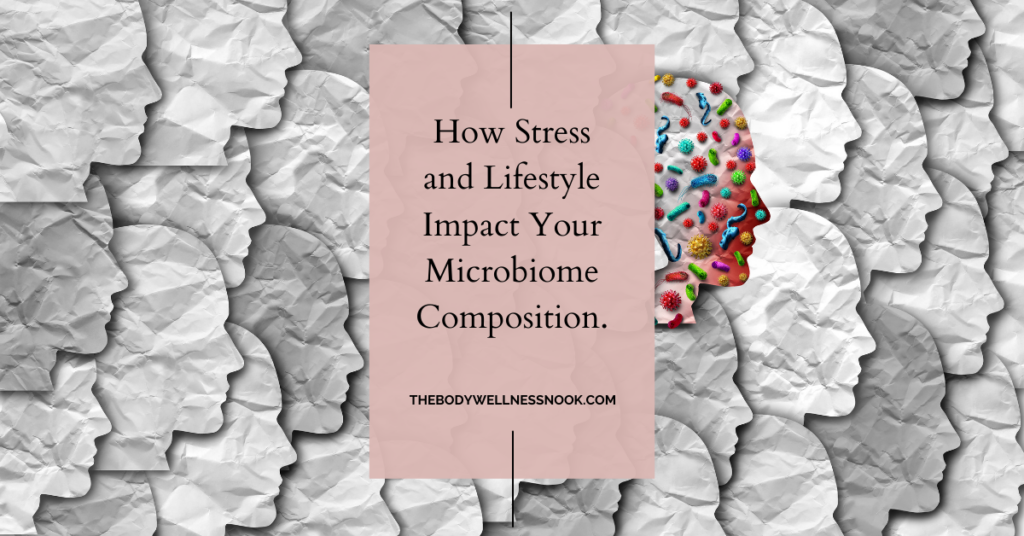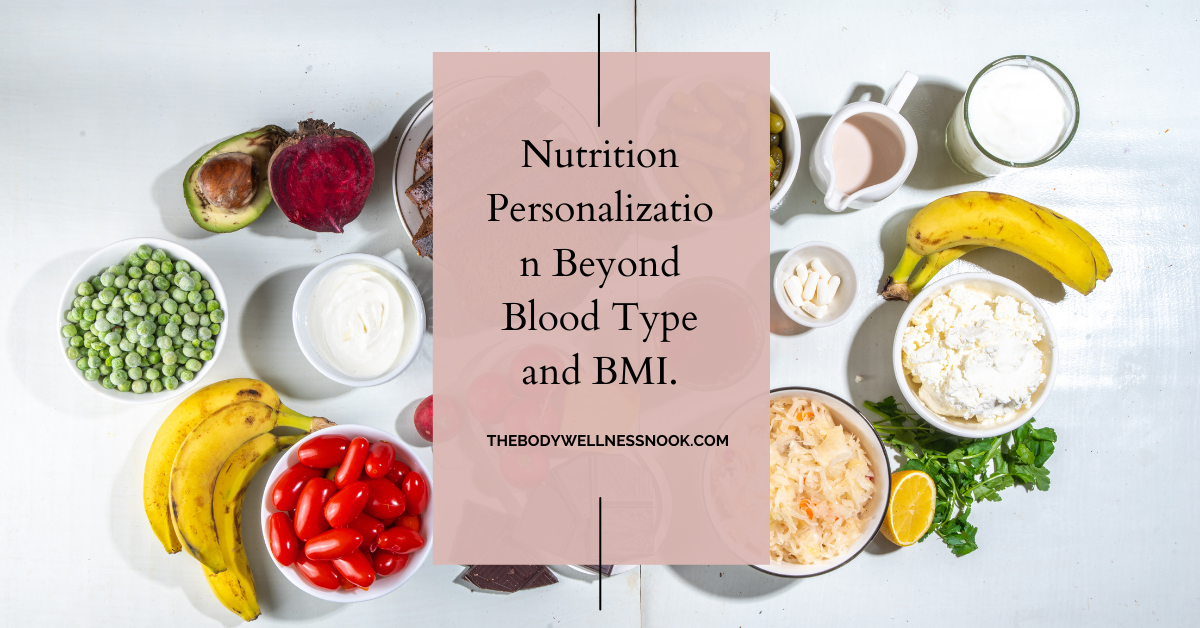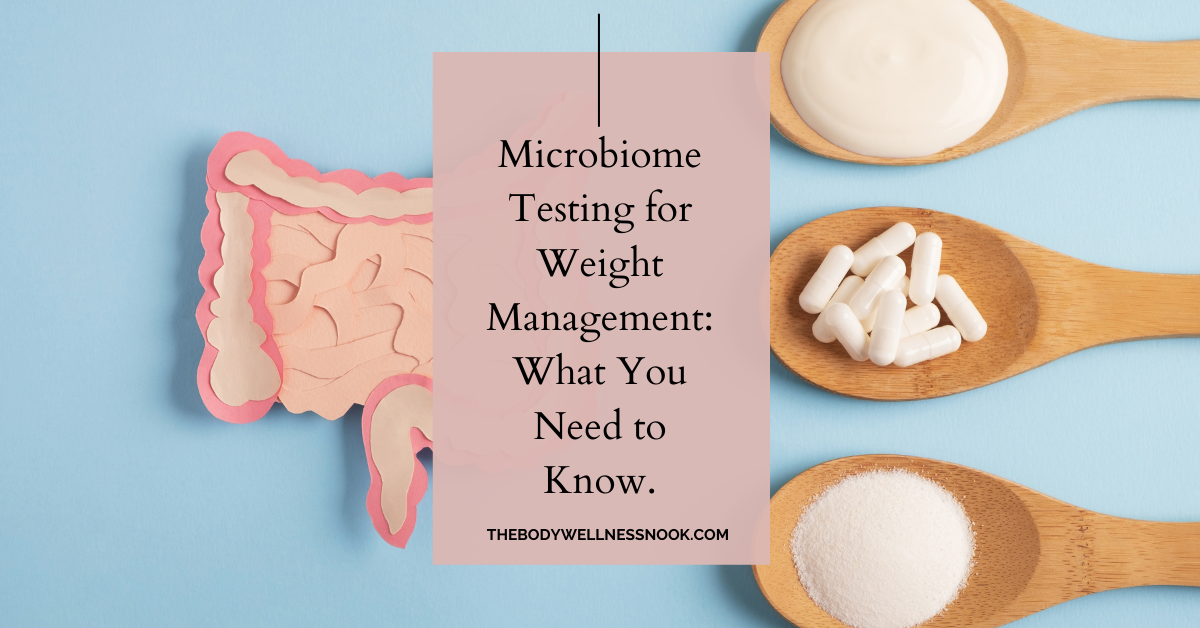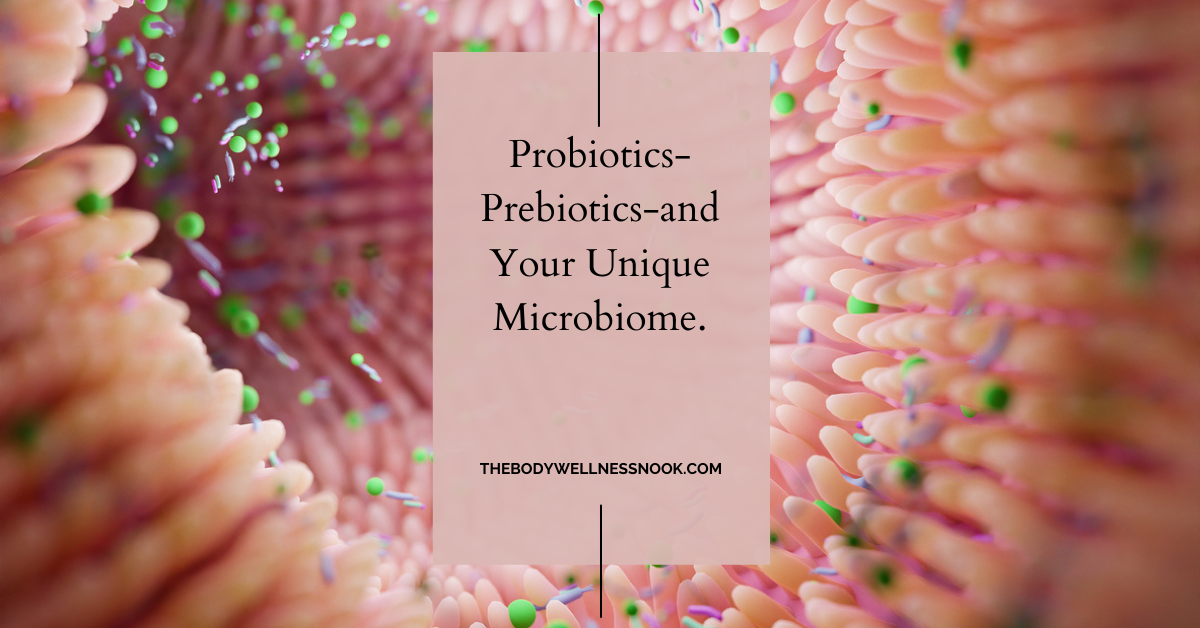Exploring Personalized Nutrition
Understanding Microbiome Testing
If you are curious about microbiome testing, and how it can fit into personalized nutrition, you are at the right place. Basically, by taking a look at what’s living inside your gut—bacteria, viruses, fungi—you know, the full zoo—you get clued into what’s up with digestion, immune function, and your health as a whole. Armed with this info, you are ready to pick and choose what goes onto your plate, knowing it’s right for your own quirky gut garden.
So, you drop off a stool sample at the lab, and their science folks get busy analyzing the microbial DNA. They piece together who’s there and how much of each. They shoot back a report painting a picture of your gut vibes, flagging any imbalances and suggesting tweaks to your eat-and-live regimen.
For nitty-gritty on this, hop over to our piece on microbiome testing explained.
Impact of Lifestyle Factors
Now, let’s chat about life’s nitty-gritty affecting that gut zoo. Stress, chow habits, workouts, sleep—or lack thereof—booze, and nicotine all get in on the action, leaving their mark on your tummy tenants.
Chronic Stress: Stress isn’t just in your head; it’s wrecking havoc downstairs too. Left unchecked, it messes with your gut, triggering a host of issues like colitis. Stress hormones throw off your gut bacteria, shaking up your moods and eating routines. Try chilling out with meditation or deep breathing. Want more tips? Catch our post on microbiome mental health.
Diet: Your menu works like a filter for your gut. Lounging on fiber, fruits, and veggies? Your beneficial bacteria are basically in a spa day. Binging on processed food and sugar is like a night in the scary woods. Love details? Check out diet influence on gut microbiota.
Exercise: Moving your body is more than just for muscles—it’s dancing your gut into health. Your exercise mojo changes the lineup of your tummy tenants, making them work better. For an in-depth peep, hit our athlete microbiome performance.
Sleep: Snoozing’s no lazy man’s game when it comes to your gut. Too little sleep? Your gut feels the blues. More on this in sleep deprivation effects on gut flora.
Smoking and Alcohol: Lighting up or boozing biases the delicate gang in your gut. Halting these can keep your inner ecosystem more peaceful. Our reads on impact of smoking on gut microbiome and effect of alcohol on microbiome give you all angles.
Peek at this handy table to see how daily stuff affects your gut wellness:
| Lifestyle Factor | Impact on Microbiome |
|---|---|
| Chronic Stress | Throws off balance, stirs up inflammation |
| Diet | Fiber fills gut joy, junk disrupts vibes |
| Exercise | Cheers on gut goodness |
| Sleep | Snooze steadies the ship |
| Smoking | Throws chaos |
| Alcohol | Tips the balance |
When you put life’s puzzle together, things start clicking on their own. To get more help reading your own gut’s report card, pop over to microbiome test results interpretation, and if you’re keen to supercharge your personal microbiome, wander through personal microbiome optimization.
Microbiome and Gut Health
Gut Microbiome Upsets
It’s weird how our gut throw a tantrum when things go awry, right? Guess what I found: things like pizza binges, lazy weekends on the couch, and bad moods can mess up the tiny critters living in our bellies! The mix in there, if disrupted, can lead to some annoying issues like irritable bowel, making us feel like our stomach’s plotting against us. Antibiotics, diet disasters, or even those nights when sleep seems like a myth can throw off balance.
Here’s the scoop:
| Cause of Gut Trouble | What’s Going Down in There |
|---|---|
| Infections | Unwanted guests take over |
| Antibiotics | Hampers bacteria buffet |
| Junk Food | Baddies throw a party |
| Couch Potato Life | Good guys starve |
| Sleep Deprivation | Shakes up the balance |
Stress Struggles
Stress is the ultimate drama queen, causing chaos in our guts without us even knowing! Turns out, stress releases hormones that can mess with our gut’s friendly residents. I’ve read that stress not only triggers stomach issues like colitis but also makes us feel constantly on edge or bloated, and it’s got a knack for wrecking our eating habits and making us steal the last cookie.
![]()
![]()
On the positive side, I’ve found out that stress-busting activities like a simple yoga session can keep our gut’s universe at peace. And trust me, the gut will thank us for that.
The Food Impact
Our gut critters have a zing for good munchies. Eating fiber-rich foods and some good old sauerkraut or yogurt can make your gut happy, and a happy gut means less grumbling! But if we give it low-nutrient, overly processed junk, then trouble’s brewing, letting harmful critters multiply.
Fiber is like the gut’s best friend, making sure the good bacteria throw a fiesta. Fast-food splurges, on the other hand, are like a wrecking ball. Want to know more? Check out the magic of personalized choices to boost our gut buddies over at personalized nutrition science.
And if you’re super curious about what kind of microscopic rave your gut’s hosting, peek into microbiome testing explained. It’s like giving your belly a profile check. For extra tips on keeping your gut happy and balanced, swing by gut microbiome health. Let’s keep those belly buddies in line!
Exercise and the Gut Microbiome
When I lace up my sneakers and get moving, I’m not just working on my beach bod—I’m also giving my gut some love. Isn’t it a bit wild to think that my gym habit can actually talk to my gut? Let’s see how busting a move impacts those little guys in my belly.
Exercise’s Influence on Gut Health
When I get active, something cool happens inside: my gut gets a health boost! Studies show that breaking a sweat is like a spa day for my gut buddies. It helps balance my energy, pumps up my gut’s energy-making skills, and might even make me think twice about that extra donut (UCLA Health). By spicing up the types of bacteria down there, I do my whole body a favor.
Different Workouts, Different Gut Reactions
Not all workouts are created equal. They make my gut dance in unique ways.
| Exercise Type | What My Gut Thinks |
|---|---|
| Easy Peasy | My gut shrugs, not much changes |
| Just Right | More bacteria partying, happier gut! |
| Go Big or Go Home | Big changes, high-fives to my protein smoothies |
Turns out, breaking a moderate sweat is a superstar move for sprucing up my gut’s bacterial fiesta (Oxidative Medicine and Cellular Longevity). And whether I’m taking a chill jog or pushing my limits, I get a gut reward.
How My Gut Cheers for Exercise
My gut’s reaction to exercise? More fascinating than a cat video. It’s like opening the door to a VIP bacteria club—more friendly critters show up, diversity goes wild, and the gut neighborhood gets even nicer (Oxidative Medicine and Cellular Longevity). Pretty sweet, especially if I keep my sneakers close and a workout routine constant.
Curious to dig deeper into gut health? Check out more on gut microbiome health. If you’re wondering how your personal gut gang might cheer on your workout routines, explore our guides on personal microbiome optimization and athlete microbiome performance.
So, hitting the gym does more than sculpt my muscles—it fuels those billions of bacteria that keep me going. Dive into this fascinating science that ties tying my shoelaces to keeping my innards in harmony. For the scoop on keeping these little dudes happy with other lifestyle hacks, peek at advanced nutrition personalization.
Sleep and Gut Microbiome
Hey there! Let’s chat about this neat connection between catching some z’s and keeping your tummy buddies in shape—yep, your gut’s got a whole micro-world in there! Turns out, getting enough good sleep is like a gold star for your belly’s tiny residents.
Why Sleep Matters
Getting regular, quality sleep is like giving your gut a high-five. Aim for 7-8 hours of snoozing so your body and mind can party together happily. (Tri-State Gastroenterology)
| Age Group | Snooze Time (Hours) |
|---|---|
| Grown-ups | 7-8 |
| Teens | 8-10 |
| Kiddos | 9-11 |
When everything’s balanced in the gut, it helps with digestion and even boosts your mood! But skip those dreams too often, and things might go a bit bonkers—like cranky bowel syndrome or even feeling blue. For more vibes on how lifestyles change your gut scene, check out our personalized nutrition science.
Sleep’s Sneaky Gut Effects
Dodging bedtime? Watch out! Stress levels go up, and your gut can freak out too. Losing sleep can mess up the gang of bacteria in your belly, with the good guys getting outnumbered. This can stir up tummy troubles. (Tri-State Gastroenterology)
| No Snooze Consequences | Belly Business |
|---|---|
| Stress Jumps | Gut bacteria get off-kilter |
| Less of the Good Guys | More tummy tantrums like IBS and IBD |
| Weakened Defenses | Easier to catch colds and stuff |
To keep things smooth, tackle stress with some meditation, deep breaths, and a bit of jogging around. Nibble on foods packed with fiber, fruits, and veggies to really keep the gut in top shape. For deeper dives into munchies affecting gut health, peek at our nutrition choices and gut microbiome.
Knowing how sleep and gut play together lets you make smart choices. Make shuteye a priority, and you’re supercharging your mind, energy, and gut ecosystem. Curious to dig into more about microbiome tests and how they tailor advice just for you? Hop on over to our page on microbiome testing benefits.
Stress and Gut Microbiome
Stress-Related Gut Bacteria Changes
Ever notice how a bad day leaves your stomach in knots? Stress doesn’t just mess with your head; it messes with your gut, too. When I’m stressed, my gut feels it in a big way. Stress shakes up your gut bugs—those tiny critters living in your belly—leaving you open to all sorts of health hiccups. Studies with our little furry friends, mice, show us how chaos in gut flora can lead to tummy troubles like colitis, which is just a fancy word for an angry colon (NIEHS NIH).
Stress hormones and friends stir up the gut’s bacteria pot, prompting them to kick out metabolites and toxins. This mishmash can mess with your mood and turn your diet upside down, making you crave stuff that’s not exactly on the healthy menu (Source). Personally, when stress hits, I become a chocolate-seeking missile.
One of stress’s nastier tricks is letting the bad guys run amok in your gut. This trouble, called dysbiosis, can lead to a “leaky gut”—yep, the lining becomes a letting-go party, allowing unwelcome guests into your bloodstream (Source). Both quick stress attacks and chronic nagging stress can rock the boat in your gut’s different areas, showing how essential it is to keep calm. Find out more in our microbiome mental health section.
Managing Stress for Gut Health
When it comes to keeping my gut happy, stress management is the secret sauce. Here’s my personal stress-handling toolbox—perhaps it can help you, too:
- Balanced Diet: Eating a variety of omega-3 rich foods like fish, nuts, and flaxseeds helps cut the stress and keeps your gut in tune. Antioxidants from berries or a sneaky square of dark chocolate also work wonders (Tri-State Gastroenterology).
- Regular Exercise: Working out is a solid way to kick stress and boost your gut’s strengths. Even if it’s just a brisk walk or a peaceful yoga session, getting active is crucial. Delve deeper into how exercise helps in our athlete microbiome performance article.
- Quality Sleep: Catching plenty of Z’s is another must. Skimping on sleep throws your gut’s residents for a loop, so a solid sleep routine is key. Dig into our tips on sleep and gut microbiome.
- Mindfulness Practices: Chill-out sessions like meditation and breathing exercises can really lower stress. With less stress, your gut microbiome stays in balance.
Check out how these dietary choices impact your gut health:
| What You Eat | Gut Health Boost |
|---|---|
| Omega-3 Fatty Acids | Keeps gut species happy |
| Antioxidants | Fights inflammation, supports good bacteria |
| Processed Foods & Sugars | Bad news, fuels bad bacteria |
| Polyunsaturated Fats | Helps dodge chronic health problems (Harvard Health) |
Managing stress is a head game, but it’s also your ticket to a happier tummy. By weaving these stress-busters into your day, you’ll give your gut health a real boost. Go on, give it a shot—your belly will thank you—so will your mind. Jump into more ways to nurture your gut microbiome health.
Nutrition Choices and Gut Microbiome
Let’s take a look at how what we’re munching on affects the little critters living in our bellies, often known as the gut microbiome. Knowing how our diet plays into this can steer us towards better choices for feeling our best.
Diet Influence on Gut Microbiota
I’ve found out that the micro-fellas in our guts are our partners in crime. We give them room and board, and they play nice by helping us out in many ways (Cleveland Clinic). Take, for instance, the way these bacteria break down complicated carbs and fibers that our bodies just can’t handle alone. They leave behind short-chain fatty acids, which are gold for our system. On top of that, they whip up vitamins like B1, B9, B12, and K.
If we’re chowing down on natural, plant-based foods, we’re giving our gut buddies a boost, which in turn helps with things like dodging heart disease and diabetes (Harvard Health Publishing). Changing up your meals this way could be just what your gut needs.
Role of Processed Foods and Fiber
Processed foods—loaded with extra chemicals, sugars, and fats—aren’t doing us any favors when it comes to gut health. But diving into foods with tons of dietary fiber does wonders for those helpful bacteria we need.
We’re talking about munching on fruits, veggies, whole grains, and beans here. These fiber-rich foods feed our gut pals, and when they dig in, they release short-chain fatty acids that keep our guts strong and inflammation-free (Cleveland Clinic).
Here’s a quick comparison of how junk food stacks up against fiber-full diets on your gut:
| Nutritional Aspect | Processed Foods | High-Fiber Diet |
|---|---|---|
| Nutrient Content | Missing vital nutrients, high in sugars and fats | Packed with vitamins, minerals, and fiber |
| Gut Microbiome Impact | Favors not-so-friendly gut bugs | Encourages friendly gut bacteria |
| Health Effects | More chronic health troubles | Fewer chronic health troubles |
Want to know more about how your diet messes with your gut? Check out our personal microbiome optimization and gut microbiome health guides. They dig deeper into keeping your gut flora happy and healthy.
Dishing up whole, naturally-prepared foods and tossing more greens onto your plate is a straight-up win for those tiny gut allies of yours. These diet tweaks can keep your microbiome balanced, leading to a healthier you.
Lifestyle Factors and Microbiome
So, you’re trying to get your gut sorted out—good on you! I’m diving into how your lifestyle shenanigans like smoking and boozy nights might mess with your gut buddies.
Impact of Smoking on Gut Microbiome
Here’s the deal with smoking: it’s not just your lungs saying, “Hey, cut it out!” Your gut’s not too thrilled either. Lighting up can mess with your gut by shaking up those trillions of tiny bacteria friends. It’s like inviting all the wrong guests to a party—chaos happens.
With smoking, there’s more than just a cough. Harmful stuff goes and messes with your gut’s harmony, leading to inflammation and irritating your inner workings. Your helpful bacteria pack their bags, while the unhelpful ones party harder than they should. This messes up your gut’s shield, making it harder to fend off nasties.
Plus, this awkward gut-dance isn’t just for show—it might even jam your metabolism’s boogie, making vitamin absorption and medication performance flatline. Wanna get all nerdy about optimizing your gut health? Slide on over to our section on personal microbiome optimization.
Effect of Alcohol on Microbiome
Ah, alcohol—friend in celebration, foe in your tummy. It’s a bit of a troublemaker for your gut flora, turning that perfect balance into a seesaw of mayhem (MD Anderson Cancer Center). Let’s see what happens when booze crashes your gut bash:
- Gut Dysbiosis: Your gut flora’s balance spins out like a merry-go-round, giving harmful bacteria the podium.
- Toxin Flares: Booze has your body throwing out nasty byproducts. These can muddy the communication lines between your gut, liver, and bloodstream.
- Leaky Gut Troubles: Drink too much, and you might discover your gut’s letting harmful intruders run wild in your blood. Not fun when your liver’s at stake or worse—raising cancer stakes.
| Partaking Preference | Impact on Gut Flavors |
|---|---|
| Light Sipper | Minor hiccups |
| Party Animal | Major upheavals and gut leaks |
| Regular Boozer | Long-lasting tummy worries and cancer red flags |
Wanna see how this affects other life performance aspects? Check our gig on microbiome mental health and microbiome immune system.
Alcohol’s mischief isn’t just a gut thing—it shakes up how nutrients groove through your system, messes with medication mojo, and the overall safety of your gut walls. Alcohol even gets its menace badge—known carcinogen alert! Your helpful microbiome plays gatekeeper here (MD Anderson Cancer Center).
If you’re dealing with gut drama and finding it tough, think about getting some microbiome testing done. It’s the Sherlock Holmes of your belly. For more on that gut wizardry, peek at microbiome testing benefits and navigate your way to better gut microbiome health.
Promoting a Healthy Microbiome
Keeping the little critters in your gut happy might sound a bit odd, but trust me, it’s key to feeling your best. Let’s chat about what keeps those gut buddies thriving and the kinds of foods that’ll give them a nice home.
Practices for Maintaining Gut Health
Gut health isn’t just about dodging tummy troubles—it’s a whole-body affair. Here’s how I try to keep things in tip-top shape:
- Mix It Up at Mealtime: Eating colorful plates full of fruits, veggies, whole grains, and legumes means you’re giving those gut microbes a smorgasbord to munch on. The more types of grub, the merrier your gut gang gets Harvard Health Publishing.
- Probiotics and Prebiotics: What’s the difference? Well, probiotics are like the party guests (think yogurt and sauerkraut), and prebiotics are the snacks that keep them hanging around (like onions and garlic). Both work together to make sure your gut feels like a swanky party spot.
- Ditch the Junk: Processed foods might be convenient, but they can mess up your gut’s vibe. Whole, real foods keep the bad guys from crashing the party Harvard Health Publishing.
- Hydration Station: Water is not just for quenching thirst—it’s essential for keeping everything running smoothly in your digestive tract.
- Move Your Body: Exercise isn’t only about breaking a sweat. It shakes up your gut’s crew in all the best ways. Visit Exercise and Gut Microbiome to see how all those jumping jacks might help.
- Mellow Out: Stress can be a real downer for your gut. Unwinding with meditation or just taking a few deep breaths can help keep things balanced. You can find some chill tips in our microbiome mental health article.
Beneficial Microbes and Diet Choices
What you eat can invite the good kind of bacteria to set up camp in your gut. Here’s what I’m reaching for:
- Fiber Foods: Things like beans, lentils, and grains feed the good microbes and help them stick around. They’re the ultimate gut snacks.
- Fermented Foods: Foods like kimchi and pickles are like sending a VIP invite to probiotics—oh, how they’ll love that salty brine.
- Polyphenol Foods: Stuff like berries and dark chocolate isn’t just delicious; they’ve got plant goodness that bolsters gut health.
- Lean Proteins: Think fish and poultry. They’re not just for muscles; they play nice with your gut folks too, unlike red meats.
- Healthy Fats: Omega-3s from flaxseeds or chia seeds? Yes, please. They keep inflammation low and the good guys up high.
| Food Type | Beneficial Microbe | Example Foods |
|---|---|---|
| Fiber-Rich Foods | Bifidobacteria | Beans, Lentils, Whole grains |
| Fermented Foods | Lactobacilli | Kimchi, Kefir, Pickles |
| Polyphenol-Rich Foods | Akkermansia | Berries, Green tea, Dark chocolate |
| Lean Proteins | Bacteroidetes | Fish, Poultry |
| Healthy Fats | Omega-3 Fatty Acids | Flaxseeds, Chia seeds, Fatty fish |
Turns out, what you eat can make a big splash in your gut community. For more gut-food gossip, flip over to our dietary influence on gut microbiome.
With these steps and bites, your gut can be a happier place, helping you feel better all over. Looking for a more personalized plan? Check out microbiome testing benefits to really get to know your gut crew.






